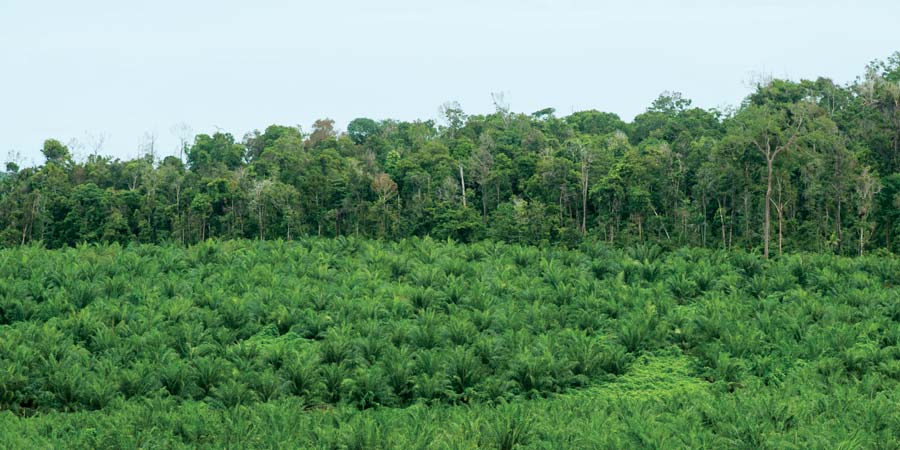



The palm oil industry faces a series of interconnected threats in Europe. These stem from fears about the alleged environmental and social impact of oil palm plantations, as well as from lobbying designed to champion the interests of oilseed competitors.
Although we are aware that many claims are flawed, the measures being planned by the EU may affect Malaysia’s market access in countries where trade sanctions can be easily manipulated and imposed.
The anti-palm oil campaigning by protectionists is creating a real impact in Europe. Consumers are being encouraged to demand proper labelling of food products. Campaigns are targeted at lawmakers on issues involving labelling, biofuels, food and deforestation, among others. As politicians are sensitive to public pressure, and to consumer opinions and demands, they feel compelled to act against the palm oil industry.
Should EU member-states impose trade barriers against palm oil imports, the obstacles will be unhealthy for the development of free international trade. For economic and social reasons, it is vital to preserve a healthy trade flow between Malaysia and Europe.
Questions over the sustainability of the palm oil industry have been in the spotlight for several years, particularly in Europe where environmental campaigners have been most energetic.
Early this year, a number of recommendations were made in the European Parliament Environmental Committee’s (ENVI) Report on Palm Oil and Deforestation:
The recommendation on biofuels may be close to becoming a reality. On Oct 23, the ENVI voted to ban palm oil biofuels from Europe from 2021, as part of the EU’s Renewable Energy Directive (RED). It further included the following amendments:
Following the vote in the Industry, Research and Energy Committee of the European Parliament on Nov 28, Europe is moving one step closer to banning palm oil biofuels.
The main point to note is that, while other food-based biofuels will be phased out by 2030, palm oil biofuels will be banned from 2021.
The rapporteur for the Report, MEP Bas Eickhout of the Netherlands, has reportedly said: “I am delighted that the Parliament is demanding an end to the use of palm oil as a biofuel. Not all biofuels have the same environmental impact and EU policy needs to make a better distinction between the good and the bad. We have to prevent food and feed crop biofuels end up displacing food production and [having] a negative climate impact sometimes even exceeding fossil fuel emissions.”

Harsh consequences
Let us be reminded that the increase in global population – estimated at more than 9 billion by 2050 – will also require expanded energy sources.
Yet, palm oil producers are facing a situation where political pressure is being increased in the EU to act against the commodity, while legislation to curb the entry of palm biodiesel is moving quickly. This pressure could very well be extended to all palm oil imports in future.
It was in late 2006 that palm oil was spotted on the political radar of the EU institutions in Brussels. The catalyst for this shift was biofuels. The EU believed this would provide an outlet for farmers facing the dismantling of agricultural subsidies; reduce the EU’s dependence on volatile supplies of fossil fuel; and enable the EU to meet an ambitious target of reducing greenhouse gas emissions by 2020, by 20% compared to 1990 levels.
The RED was thus conceived and entered into force on June 25, 2009. Since then, this has been the main regulatory tool used by Brussels to regulate the biofuels sector.
It sets targets for each member-state in relation to renewable energy use. For example, as part of the 20% overall renewable energy target, a minimum 10% use of renewable energy is required in the transport sector.
Almost all of this 10% comes from biofuels – and a large percentage has come from palm biodiesel to date. This element in the RED has driven larger exports from Malaysia to the EU. Palm biodiesel is the renewable transport fuel of choice for many across Europe.
But since 2009, various measures have been applied to ban palm oil biofuels. The latest (third) revision to the RED is underway in Brussels, and is at a very advanced stage of the legislative process. Once again, palm oil is being targeted.

Although we know policy-making in Europe is complex and not always transparent, Malaysia must use all the tools at its disposal to ensure a balanced outcome. We should not assume the odds are stacked against us. Rather we must play the game, and play it better than our opponents, by using our networks to assess what is needed and when, and then to deliver.
We must carry on communicating a clear position on sustainability and address both legitimate concerns and misconceptions with policy makers, downstream users and the media, in order to minimise the risk of damage to our traditional markets.
Our engagement thus far with European politicians has taught us that we are facing a real lack of awareness about the palm oil industry, not just in terms of its sustainability, but as a whole.
The politicians must be made to understand that there is another side to this debate – that socio-economic development and poverty alleviation strategies in palm oil producing countries will be affected when exports of a key commodity are curbed.
Malaysia also needs to play to its strong points, as there is no value in mere defensive responses to negative claims.
The EU, for example, needs Malaysia as a trading partner. Many of its member-states have significant exports to Malaysia. It would be hypocrisy for them to ban palm oil imports, and then expect us to continue buying their products. This is among the strongest cards that we can play, and its impact is one that the EU will easily understand.
It is the rational interests of everyone in Europe to retain the import of palm oil biofuels. It helps European customers and consumers, it helps Malaysian producers, and it is good for the wider trade between the EU and Malaysia.
However, political decisions in Brussels are not always made on a rational basis: there are too many vested interests. If Malaysia does not exert sufficient pressure to protect its social and economic interests, then it will be small farmers who will mainly pay a terrible price when revisions to the RED take effect.
Belvinder Sron
Deputy CEO, MPOC